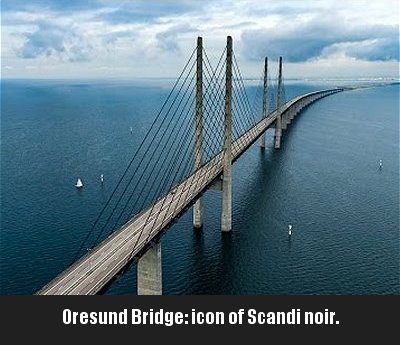
PIERCING THE GLOOM
We need fiction to inspire as well as repel. The lack of such highlights a palpable cultural pessimism right now.
The call of a BBC drama chief in August 2017 for fewer ‘dark’ shows and more uplifting stories in TV fiction made brief headlines, presumably because of the source. Piers Wenger has a point. It is challenging to find any drama outside of a Sunday night which is light and inspirational. The mood is decidedly downbeat. Light is uncool. Why so?
The environment is conducive, for sure. Our minds are filled with lurid thoughts around the four great Cs of the new century. Most contemporary wars lack lawful sanction and are filled with appalling crimes. Climate change is exacerbating natural disasters. The banking crash brought capitalism to the brink and has since punished the weakest. Computing develops at an exponential rate, transforming the economy, picking off one sector after another. Historians to come will likely identify millennial anxiety – and with good reason.
Yet there is nothing deterministic about the drama we produce and consume. The 1980s was a decade of deep foreboding, with the threat of nuclear annihilation casting a cold shadow over society. But the drama was often defiantly optimistic – if a little camp and oversold.
Perhaps the unanticipated popularity of Scandinavian drama – moody, fitful and melancholy – has played a role. Filming is done at night in the gloomiest parts of beautiful cities, producing an anti-Morse effect. The violence is so bizarrely crafted it could sustain its own post-modern art exhibition. One could be forgiven for thinking Danes are the saddest people in the world, not among its happiest.
Despite its inky-black tone, Scandi-drama has offered an adult perspective on human nature. The good are not as good or the bad as bad as we imagine; there is a complexity to motivation and execution. It is as if Denmark is making up for a century of Hans Christian Andersen’s Manichean fairy tales where the good are unimpeachably, and the bad irredeemably, so.
If this represents darkness, then it is true to our existential condition. Those familiar with the Bible and its many stories will recognise a similar truth in scripture. Unlike most national histories, ancient scholars of the nation of Israel were painfully honest about personal and corporate failings. The hagiography which often clouds rather than illuminates the lives of national heroes is lacking. King David lived at the zenith of his nation’s power. There was good reason to burnish his character and reign for future generations. Yet his story is replete with moral failure and mixed motive. This is what makes it so instructive and timeless.
Ours is a broken world and writers are usually faithful in reflecting on this sad truth. As consumers, we are also attracted by the ‘shiver’ factor in fiction. No-one wants fiction to read like the photoshopped Facebook page of an acquaintance. Yet we need stories which can inspire as well as repel. The lack of such highlights a palpable cultural pessimism right now. Challenging this calls for aspirational drama too, where people seek to better themselves and show moral courage as well as the inevitable physical bravery. To do this well requires stories which are rooted in reality, not absurd caricature.
Ultimately, dark must give way to light. The light shines in the darkness, and the darkness did not overcome it. Without this, there is no hope. As many of our stories suggest.
POPULAR ARTICLES

Obama's Covert Wars
The use of drones is going to change warfare out of all recognition in the next decades.

Through A Glass Starkly
Images of traumatic incidents caught on mobile phone can be put to remarkable effect.

What Are British Values?
Is there a British identity and if so, what has shaped the values and institutions that form it?


